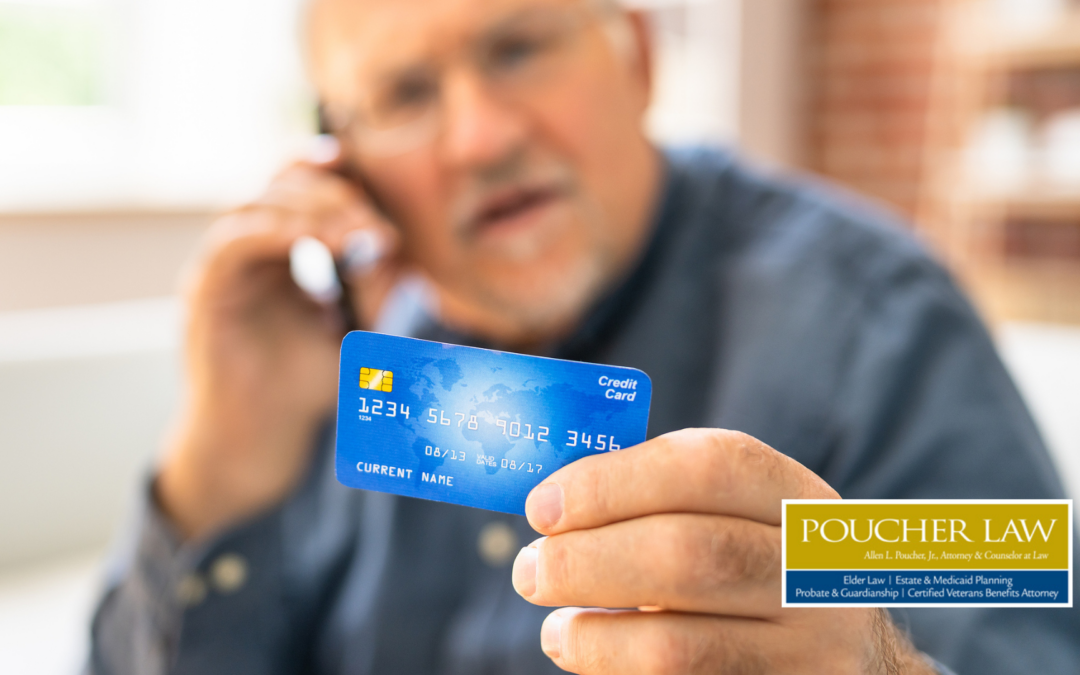Do you have senior loved ones in your family? Do they regularly use and enjoy the internet? As you begin to celebrate Valentine’s Day with your loved ones, are you including your senior loved ones? Valentine’s Day may be especially lonely for your senior loved ones if any of them are recently widowed or had to move to assisted living or a nursing home. Be sure to reach out to your senior loved ones with love, care and conversation during not only this holiday but at least weekly, if not daily. Your senior loved ones need to be aware that during this time of year many online scammers will attempt to take advantage of emotional vulnerabilities around Valentine’s Day as people, especially seniors, share their feelings on the internet. The reasons that seniors are prime targets is due to the increased likelihood that they have access to money, are less tech-savvy than younger adults, and suffer from a higher incidence of loneliness and social isolation.
At this time of year these scams, referred to as romance scams or “lonely heart” scams, are cause for alarm. According to the Federal Trade Commission, it reported a record loss of 547 million from these scams on Americans in 2021. So, here are three tips on how you can help your senior loved ones protect themselves this Valentine’s Day:
- Avoid sending money to anyone you meet on the internet. If you have recently met someone online and after a few online meetings this person begins to express genuine love and companionship interest and then asks for money, be skeptical, a genuine romantic partner will not ask for money from you. Another new scam is to ask for investment money for bogus investments like cryptocurrency. No matter how tempting, it is important to break off all communication immediately. Do not offer to accept money either, it may be another way of gaining access to your financial accounts, or an illegal money laundering trap. Always protect yourself by reaching out to family and friends for advice.
- Be suspicious of anyone you meet online not wanting to meet in person. Would someone who is truly a romantic online interest really not be able to meet in person? If you meet someone online, be patient and take your time getting to know the person before committing to a relationship. In fact, be very careful of people who claim to have fallen in love with you very quickly, before you have met in person or even talked on the phone. Be careful not to share personal information online, including your last name, address, and financial information. Again, it cannot be said enough, reach out to family and friends for advice.
- Claims of romance scammers. Be extremely careful when you meet someone online who claims to be from the US but is currently traveling or working abroad. Scammers often use this excuse to explain why they cannot meet in person. You can use a search engine to check a person’s name, email, or phone number to see if they have a history of scamming. If you are unsure how to do this, ask a family member or friend. Be extra cautious if the person you are talking to says they are in the military, an oil rig worker, or in a similar profession because many scammers use this as a ruse.
In fact, as a senior, be sure to protect yourself by talking to friends, family and caregivers about any new online relationship and pay attention if they are concerned.
If you or a senior loved one or someone you know has been the victim of an online romance scam, contact an experienced Florida attorney to learn more about your rights and appropriate courses of action.
Planning for the future is critical to ensure that your goals for the end of life are achieved. We know this article may raise more questions that it answers. We do telephone, computer, and face-to-face appointments. Our face-to-face appointments are held outside in the open air (frequently selected by clients for document signing) and inside our office conference room. We follow all CDC guidelines. Our office procedures adhere to COVID-19 safety protocols and are designed and enhanced by medical review and air quality engineering.

